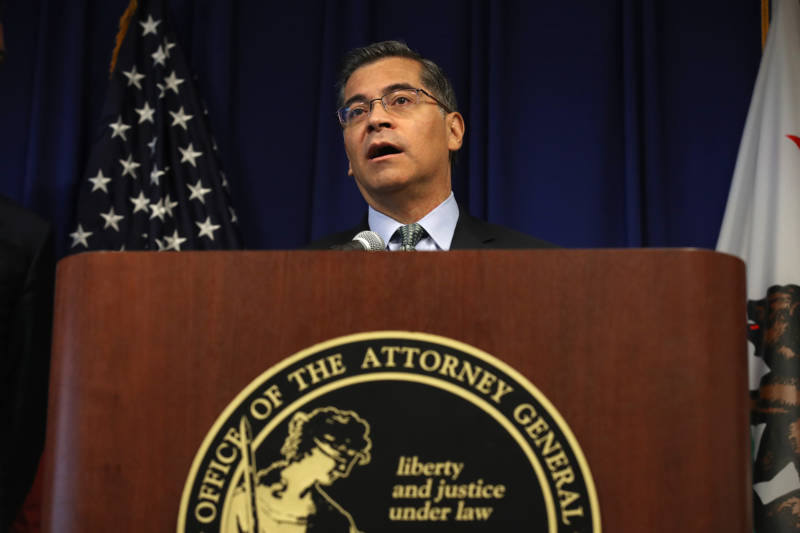This second phase of recommendations focuses more on improving the department's internal affairs policies. Neither of the reports are legally binding.
"It’s not about just being sufficient as a police department," Becerra said. "This is about being accountable and meeting the call for change. It's also about stepping up to make a difference when we're confronted by tragedy, because the shooting death of Stephon Clark back in 2018 was exactly that."
During the briefing, Becerra repeatedly praised SPD Chief Daniel Hahn for allowing a thorough review of his department and striving for "excellence."
"You don’t often get asked to go in and really look at the inside of the operation. He really wanted to be a leader," Becerra said, adding that Hahn instructed investigators to "come in and let me know how we can improve."
Hahn — who notably did not attend today's briefing — called for the original AG report following the March 2018 killing of Clark, an unarmed 22-year-old Black man shot multiple times by police officers in the backyard of his grandmother's house. The incident sparked widespread protests in Sacramento and other cities, and drew national media attention.
Following a nearly year-long investigation, Sacramento District Attorney Anne Marie Schubert did not charge the two officers who killed Clark, reigniting angry protests in the city. In a move assailed by activists, Becerra also declined to charge the officers, concluding that they legitimately believed Clark had a gun as he moved toward them. Both officers remain on active duty in the department.
In the wake of the shooting, the city adopted a set of relatively modest reforms, including additional requirements for releasing body camera footage and a new foot patrol policy, changes that activists criticized as falling far short of what was needed.
Although presenting himself as a civil rights defender, Becerra has drawn criticism from police reform activists and other progressives for protecting law enforcement and not fully backing legislative checks on police use of force. In 2019, he was also sued by civil rights groups for refusing to release use-of-force records, and later threatened legal action against Bay Area journalists who received a secret list of police misconduct records he said were improperly released.
